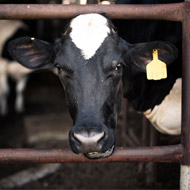
President says statement is “insulting” to EU vets
The BVA is calling on Defra secretary Michael Gove to retract his recent statement that vets working in UK abattoirs, but qualified elsewhere, are not necessarily qualified to the same level as ‘full-dress’ UK vets.
Defra is exploring whether non-vets could sign export health certificates, in order to cope with increased demand after Brexit.
In an oral evidence session with the Environment, Food and Rural Affairs (Efra) select committee, Mr Gove is reported to have said:
“It is also the case that other countries have people who are skilled and valuable who fulfil a vet med function, but who are not trained to the same level.
“That is one of the reasons, for example, that in our abattoirs we often have people from other countries who do a great job, but who do not necessarily have the same level of qualification as full-dress vets here.”
Around 95 per cent of veterinary surgeons working in UK abattoirs are estimated to be from elsewhere in the EU. The BVA said all of these vets are fully trained and registered with the RCVS, as well as completing extra qualifications to become official veterinarians (OVs).
BVA president John Fishwick said: “Mr Gove’s comments to Efra Committee are incorrect and insulting to EU vets who are highly qualified for the roles they undertake. We are asking him to retract these comments to demonstrate that the UK Government recognises the value of the whole veterinary profession in the UK, not just those who qualified here.
“We are facing a veterinary workforce shortage and need to retain colleagues across all areas of the profession, including public-health critical roles that ensure our meat and dairy products are safe and provide the UK with a thriving export trade.”
Mr Fishwick also warned against allowing non-vets to sign export health certificates, as OVs are “best placed” to ensure high standards are met across the food supply chain.
He added: “Putting this specialist work into less qualified hands undermines the OVs’ expertise and could leave the supply chain at increased risk of food fraud and welfare breaches at a time when maintaining high consumer confidence in UK produce has never been more important.
“Far from boosting trade, the idea would fall at the first hurdle in many countries that insist on exports being certified by a veterinary surgeon because they recognise the value of veterinary certification.”



 The latest
The latest